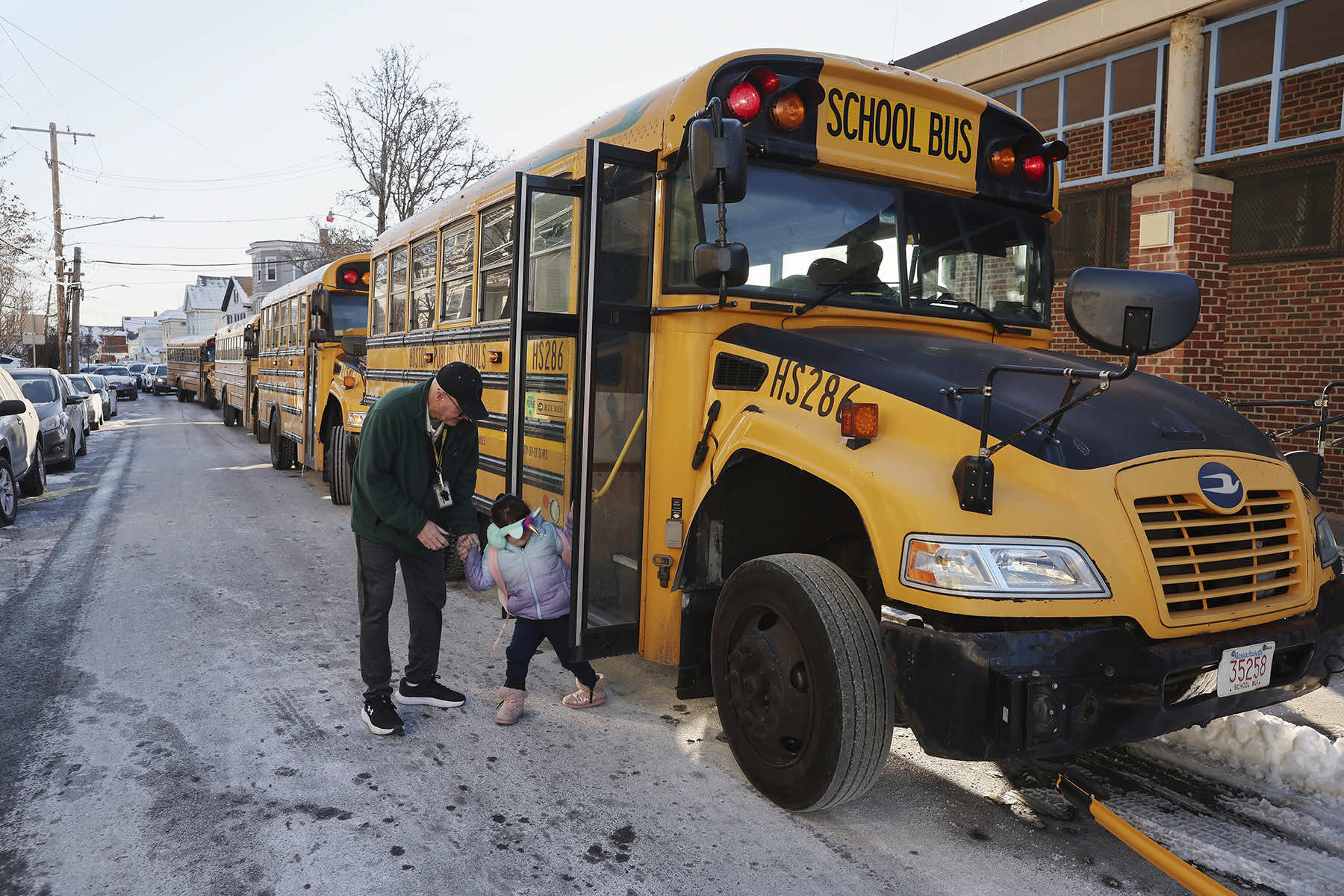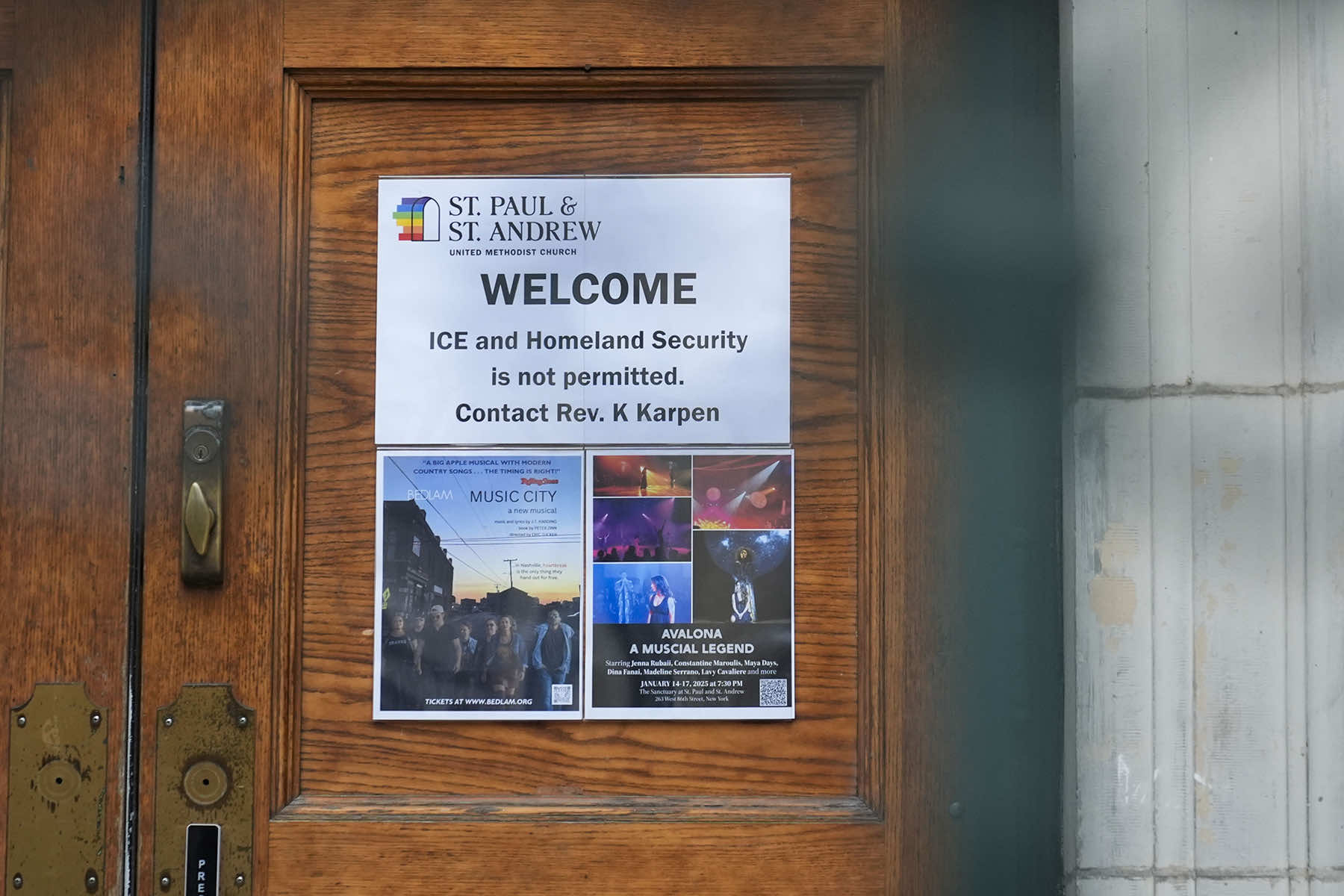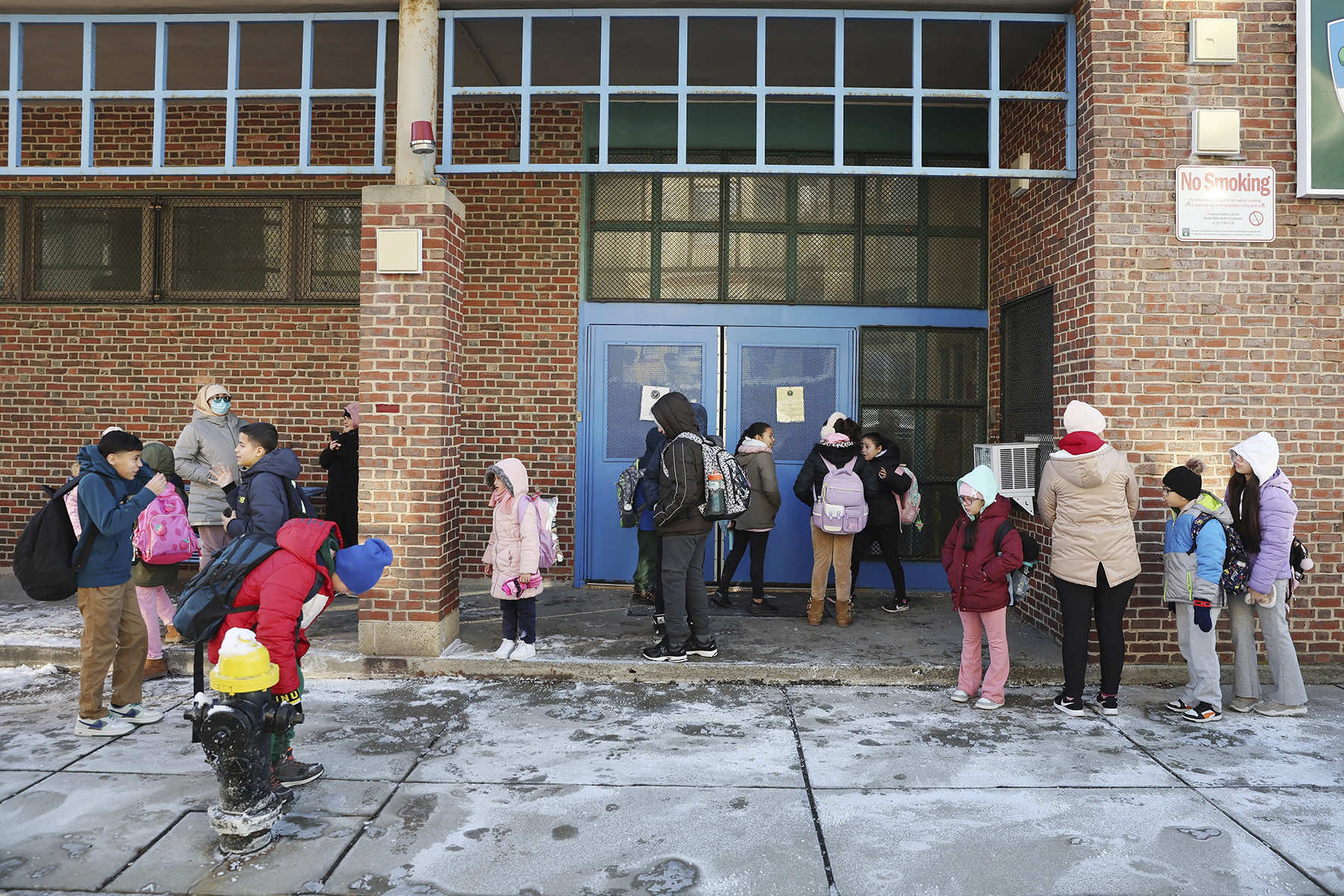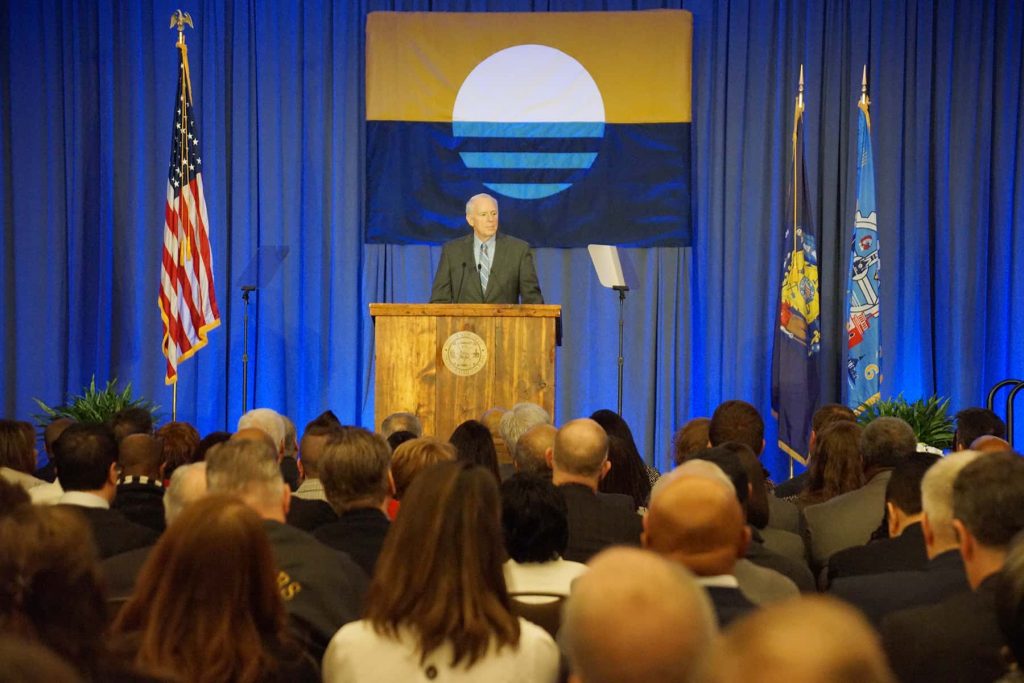
As President Donald Trump cracks down on immigrants in the U.S. illegally, some families are wondering if it is safe to send their children to school.
In many districts, educators have sought to reassure immigrant parents that schools are safe places for their kids, despite the president’s campaign pledge to carry out mass deportations. But fears intensified for some when the Trump administration announced on January 21 it would allow federal immigration agencies to make arrests at schools, churches, and hospitals, ending a decades-old policy.
“Oh, dear God! I can’t imagine why they would do that,” said Carmen, an immigrant from Mexico, after hearing that the Trump administration had rescinded the policy against arrests in “sensitive locations.”
She plans to take her two grandchildren, ages 6 and 4, to their school in the San Francisco Bay Area unless she hears from school officials it is not safe.
“What has helped calm my nerves is knowing that the school stands with us and promised to inform us if it’s not safe at school,” said Carmen, who spoke on condition that only her first name be used, out of fear she could be targeted by immigration officials.
Immigrants across the country have been anxious about Trump’s pledge to deport millions of people. While fears of raids did not come to pass on the administration’s first day, rapid changes on immigration policy have left many confused and uncertain about their future.
At a time when many migrant families — even those in the country legally — are assessing whether and how to go about in public, many school systems are watching for effects on student attendance.
Several schools said they were fielding calls from worried parents about rumors that immigration agents would try to enter schools, but it was too early to tell whether large numbers of families are keeping their children home.
“This action empowers the brave men and women in CBP and ICE to enforce our immigration laws and catch criminal aliens — including murderers and rapists — who have illegally come into our country. Criminals will no longer be able to hide in America’s schools and churches to avoid arrest,” the Department of Homeland Security said in a statement.
The move announced on January 21 reverses guidance that for over a decade has restricted two key federal immigration agencies, Immigration and Customs Enforcement and Customs and Border Protection, from carrying out immigration enforcement in sensitive locations.
In a statement, the Department of Homeland Security said: “Criminals will no longer be able to hide in America’s schools and churches to avoid arrest.”
The department said Acting Secretary Benjamine Huffman issued the directive on January 20. The ICE guidance dates back to 2011. Customs and Border Protection issued similar guidance in 2013.
Daniela Anello, who heads DC Bilingual Public Charter School in the nation’s capital, said she was shocked by the announcement.
“It’s horrific,” Anello said. “There’s no such thing as hiding anyone. It doesn’t happen, hasn’t happened. … It’s ridiculous.”
An estimated 733,000 school-aged children are in the U.S. illegally, according to the Migration Policy Institute. Many more have U.S. citizenship but have parents who are in the country illegally.
Education officials in some states and districts have vowed to stand up for immigrant students, including their right to a public education. In California, for one, officials have offered guidance to schools on state law limiting local participation in immigration enforcement.
A resolution passed by Chicago Public Schools’ Board of Education in November said schools would not assist ICE in enforcing immigration law. Agents would not be allowed into schools without a criminal warrant, it said. And New York City principals in December were reminded by the district of policies including one against collecting information on a student’s immigration status.
That is not the case everywhere. Many districts have not offered any reassurances for immigrant families.
Educators at Georgia Fugees Academy Charter School have learned even students and families in the country legally are intimidated by Trump’s wide-ranging proposals to deport millions of immigrants and roll back non-citizens’ rights.
“They’re not even at risk of deportation and they’re still scared,” Chief Operating Officer Luma Mufleh said.
Officials at the small Atlanta charter school focused on serving refugees and immigrants expected so many students to miss school the day after Trump took office that educators accelerated the school’s exam schedule so students would not miss important tests.
Asked on January 21 for attendance data, school officials did not feel comfortable sharing it. “We don’t want our school to be targeted,” Mufleh said.
The new policy on immigration enforcement at schools likely will prompt some immigrant parents who fear deportation to keep their children home, even if they face little risk, said Michael Lukens, executive director for the Amica Center for Immigrant Rights. He said he believed it was part of the administration’s goal to make life so untenable that immigrants eventually leave the United States on their own.
For Iris Gonzalez in Boston, schools seem like just about the only safe place for her to go as someone in the country illegally. She has had children in Boston schools for nearly a decade and she does not expect anyone there to bother her or her daughters for proof they are here legally. So her children will keep going to school. “Education is important,” she said in Spanish.
Gonzalez, who came to the U.S. from Guatemala illegally 14 years ago, does worry about entering a courthouse or driving, even though she has a license. “What if they stop me?” she wonders.
“I don’t sleep,” she said. “There’s a lot of uncertainty about how to look for work, whether to keep driving and what’s going to change.”
Carmen, the Mexican grandmother who now lives in California, said returning home is not an option for her family, which faced threats after her son-in-law was kidnapped two years from their home in Michoacan state, an area overrun with drug trafficking gangs.
Her family arrived two years ago under former President Joe Biden’s program allowing asylum-seekers to enter the U.S. and then apply for permission to stay. Following his inauguration on January 20, Trump promptly shut down the CBP One app that processed these and other arrivals and has promised to “end asylum” during his presidency.
Carmen has had several hearings on her asylum request, which has not yet been granted.
“My biggest fear is that we don’t have anywhere to go back to,” she said. “It’s about saving our lives. And protecting our children.”
The announcement on January 21 had been expected as Trump works to deliver on his campaign promise to carry out mass deportations of anyone in the country illegally. But it was still jarring for advocates who have argued that raising the prospect of deportation at churches, schools or hospitals can prevent migrants from getting medical attention or allowing their children to attend school.
“This action could have devastating consequences for immigrant families and their children, including U.S. citizen children, deterring them from receiving medical attention, seeking out disaster relief, attending school, and carrying out everyday activities,” Olivia Golden, interim executive director of the Center for Law and Social Policy, said in a statement.
“Should ICE presence near such locations become more common, the likelihood also increases that children could witness a parent’s detention, arrest, or other encounters with ICE agents,” Golden said.
Under the “sensitive locations” guidance, officers were generally required to get approval for any enforcement operations at those locations, although exceptions were allowed for things like national security.
Trump kept the guidance on sensitive locations in place during his first administration although he did remove similar guidance that restricted immigration enforcement at courthouses. That courthouse guidance was put in place once again during the Biden administration, which also issued its own update to the “sensitive locations” guidance limiting where ICE and CBP officers could carry out immigration enforcement.
In California, officials have offered guidance to schools on state law limiting local participation in immigration enforcement.
“Our policy is clear and strong that immigration enforcement is not allowed on our campuses unless forced through a valid court order,” said Diana Diaz, spokeswoman for the Fresno Unified School District, one of the largest in California. “We’ve been in communication with local law enforcement who has assured us that they will not be supporting immigration enforcement across any of our schools.”
Over the years dozens of migrants have sought sanctuary in churches for immigration-related reasons, sometimes staying for weeks at a time to evade ICE capture.
A 2018 story by The Associated Press detailed how since 2014, at least 70 publicly known cases have emerged of people seeking sanctuary in churches for immigration-related reasons, according to Church World Service, a New York organization that supports the sanctuary efforts. Of those, 51 came up since Trump took office in January 2017 and pledged a harder line on immigration.
Rev. K Karper, senior pastor of St. Paul & St. Andrew United Methodist Church in New York City, said he felt it was important several days ago to put up a sign informing ICE and Homeland Security they were not permitted inside the church.
“It’s something that we’ve been involved with for a long time,” he said. “It’s part of our religious mission to reach out and provide a place of safety to new arrivals and other people, regardless of their status.”
Given the administration’s policy change, Karper said his church will make it clear to officers that without a warrant, they do not have any business on church property.
“We’re a peaceful people. You know, what are we going to do?” he asked. “But we’re going to make it clear to anybody who’s in the building, who feels threatened by this that they have rights, that they’re not required to answer questions, that they’re not required without a warrant to produce ID. You know, there’s still a rule of law in this country and we’re not Germany in the ’30s. We’re just not.”

















